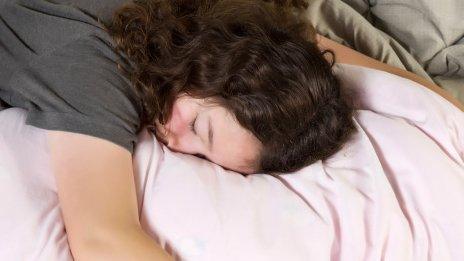How much sleep do teenagers need?
- Published
School Reporters from Northumberland investigate the science of sleep and see if their fellow pupils are getting enough
How much sleep do teenagers need? Are they being kept awake by mobile phones and tablets? Do they need more advice on how to get a good night's sleep and more education about the risks of sleep deprivation?
These are questions that the Teen Sleep, external research project at the University of Oxford hopes to find answers to over the course of 2017 - with the help of teenagers from 100 schools across the UK.
But BBC News School Report, external students from Northumberland Church of England Academy in Ashington are already monitoring their sleep as the first school to take part in a 10-week pilot scheme for the Oxford researchers.
As part of the trials, Year 10 and Year 11 students at the school:
Attend a sleep education programme, which sets out how to make sure they get a good night's sleep, for example by avoiding screen-based activity late in the evening
Complete a sleep diary before and after receiving the sleep education programme
And a sub-group of 20 Year 10 pupils wear two wrist devices for two weeks, to monitor their sleep patterns.
"We wear two special bracelets," explained Chris, 15. "One monitors light between night and day and monitors screen light. The second one monitors your heart rate, how well or how badly you sleep and it's all connected to my phone."

Chris and 19 other Year 10 pupils are wearing the special bands for two weeks
Scientists have already warned that society as a whole has become "supremely arrogant" in ignoring the importance of sleep, so how much of a problem is tiredness for the young people taking part in this research?
"Last night I fell asleep at about half past 10 and I put the lights out to go to bed at 10 o'clock, but I was on my phone for about half an hour - and it affected my sleep," said Amy Rose.
"Last night I didn't get to sleep until about half 11 and then in the morning I didn't wake up til eight o'clock which is really late, so I had to get ready in the car on the way to school," added Christina, 14.
Professor Russell Foster from Oxford told the School Reporters he gets angry when people just dismiss teenagers as being lazy and wants to find out how they can get better advice on sleep.
"I mean 36% of our entire biology is sleep biology and yet you guys, and all other teenagers, get no advice about how important sleep is, how you can take control of your sleep, why you need to take sleep seriously and what are the impacts if you don't have enough sleep."
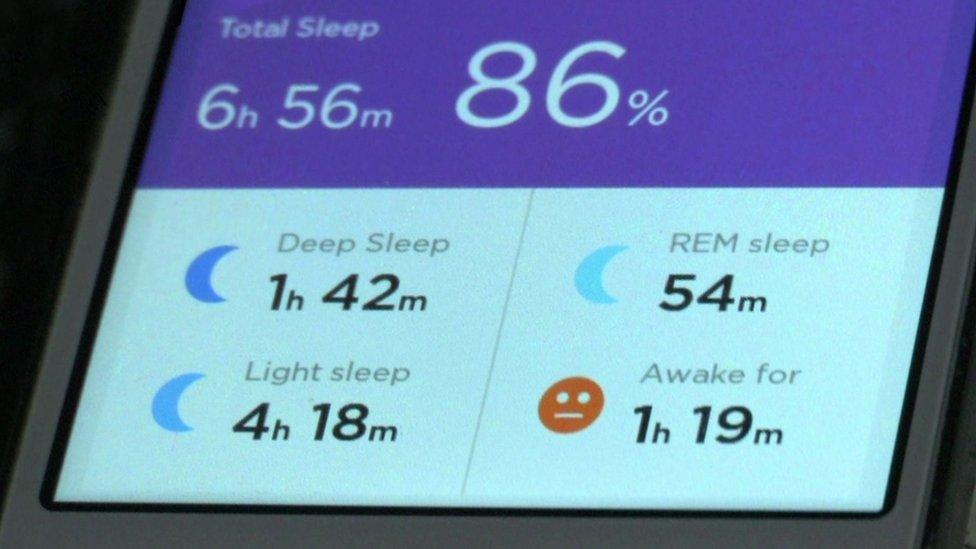
Sleep data from the wrist bands downloads onto the students' phones
Prof Foster, who says teenagers need around nine hours' sleep, warned the students there are both short-term and long-term effects of not getting enough sleep.
"The first thing is that the brain's ability to process information begins to fall apart pretty quickly with lack of sleep and also your emotional responses, your empathy towards other people also begins to decline and your tendency to do stupid and unreflective things goes up with lack of sleep.
"Longer term sleep disruption can lead to the suppression of the immune system, higher levels of infection and really long term sleep disruption [...] can lead to some forms of cancer, coronary heart disease and metabolic abnormalities such as diabetes."
He says the study - which will be piloted in 16 schools between now and January before rolling out to 100 schools in 2017 - will help them find out whether an education programme, explaining the importance of sleep and the risk of sleep deprivation, improves educational performance and overall health and well-being.
'It's opened my eyes'
If the reaction of School Reporters at Northumberland Church of England Academy is anything to go by, the researchers can expect to find a positive link between greater sleep awareness and student performance.
"It's made me realise I'm probably not getting enough sleep and I should probably go to sleep earlier, said Lynsey, 14.
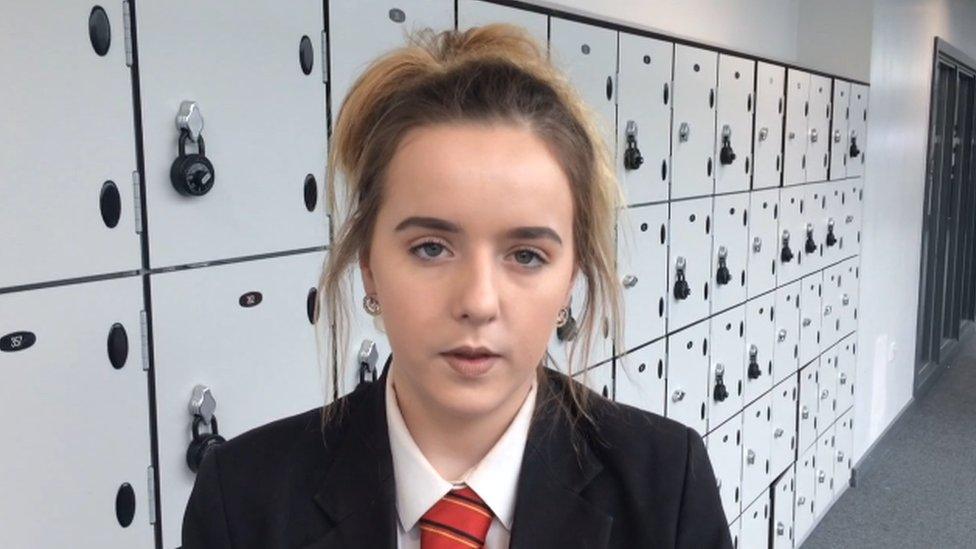
Christina says all teenagers should learn about the importance of sleep
"It's important because it can keep you refreshed for the next day and helps you learn new things that you won't learn if you're tired because you won't be focused."
Christina added: "It's opened my eyes about sleep. We've learnt a lot about it and how important it is. If we don't get enough sleep, it can stop you concentrating in class.
"If other kids would look into it like we have, they'd understand that they need to get into a routine for sleep. I reckon all schools should be warned about sleep and how important it is."
Schools interested in taking part in the Oxford research should email adam.jowett@ndcn.ox.ac.uk or call 01865 618666.
- Published12 May 2014
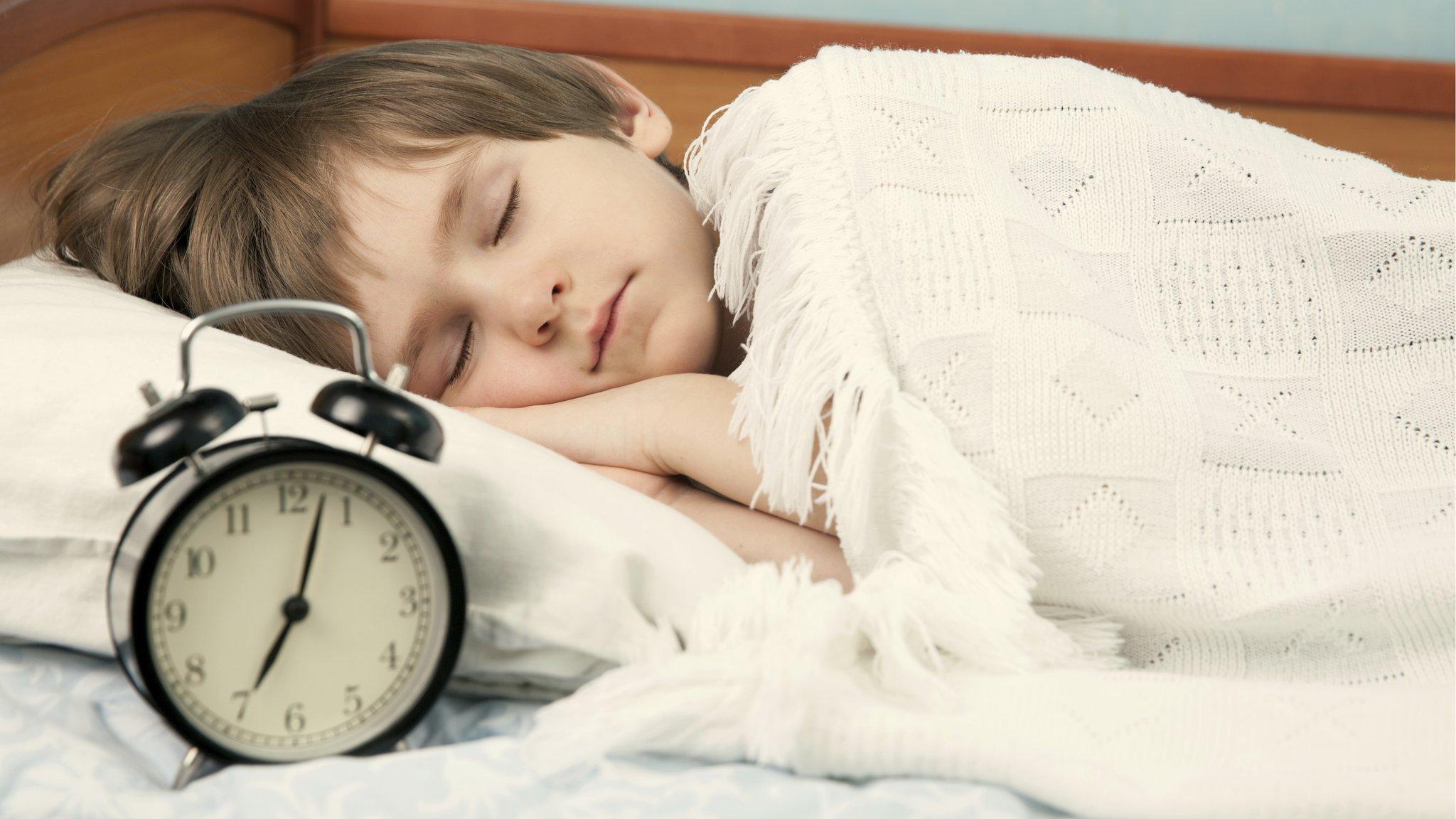
- Published8 September 2015
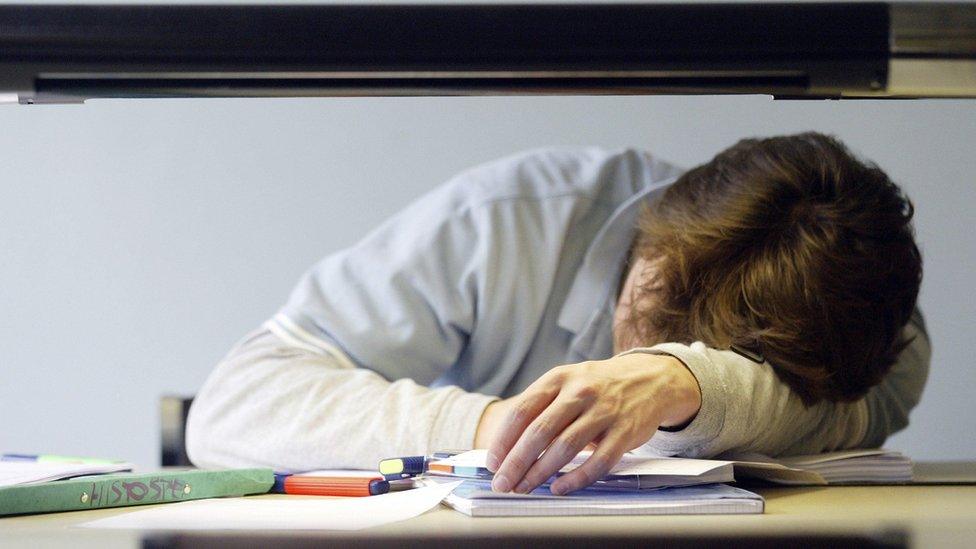
- Published9 October 2014
